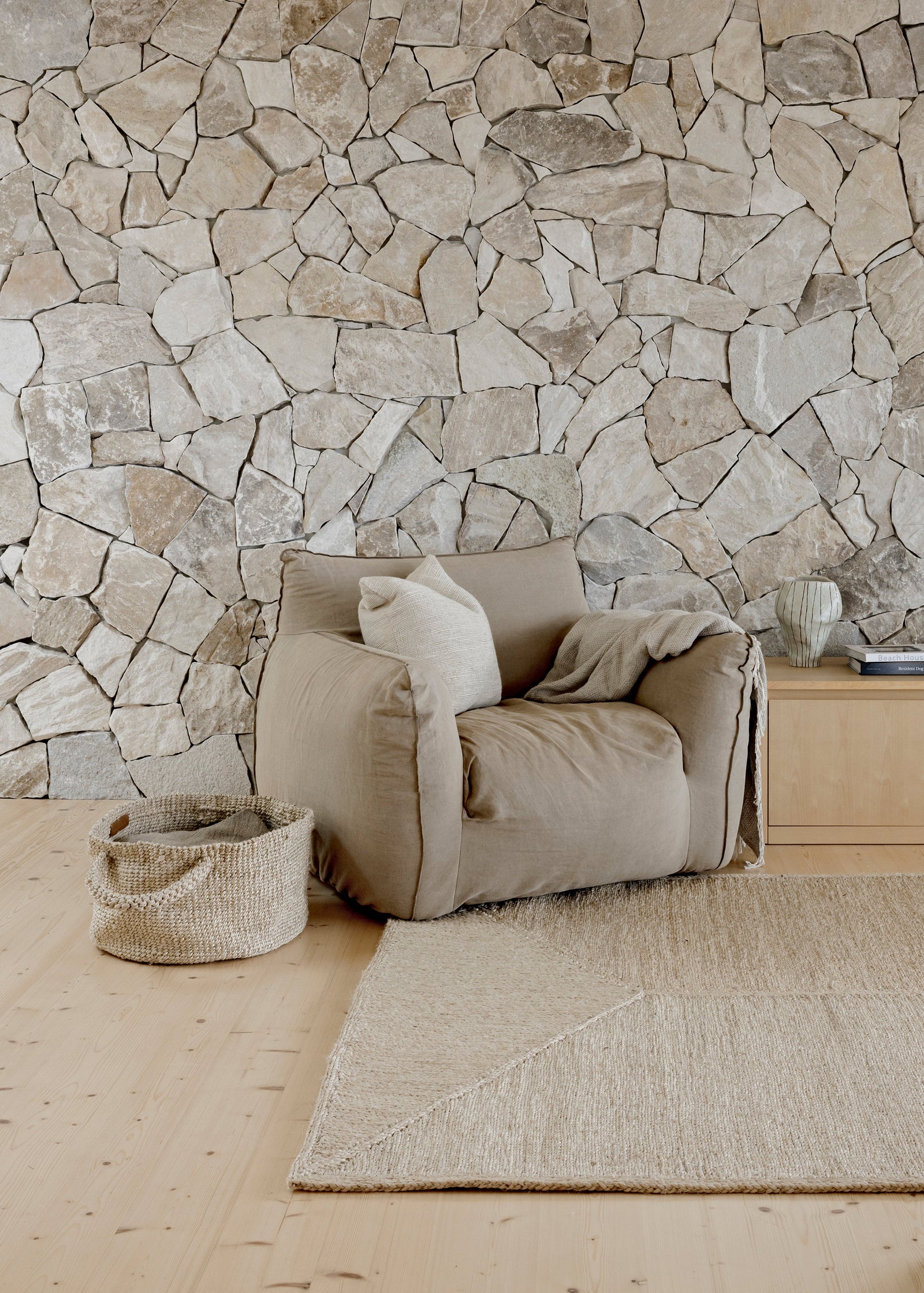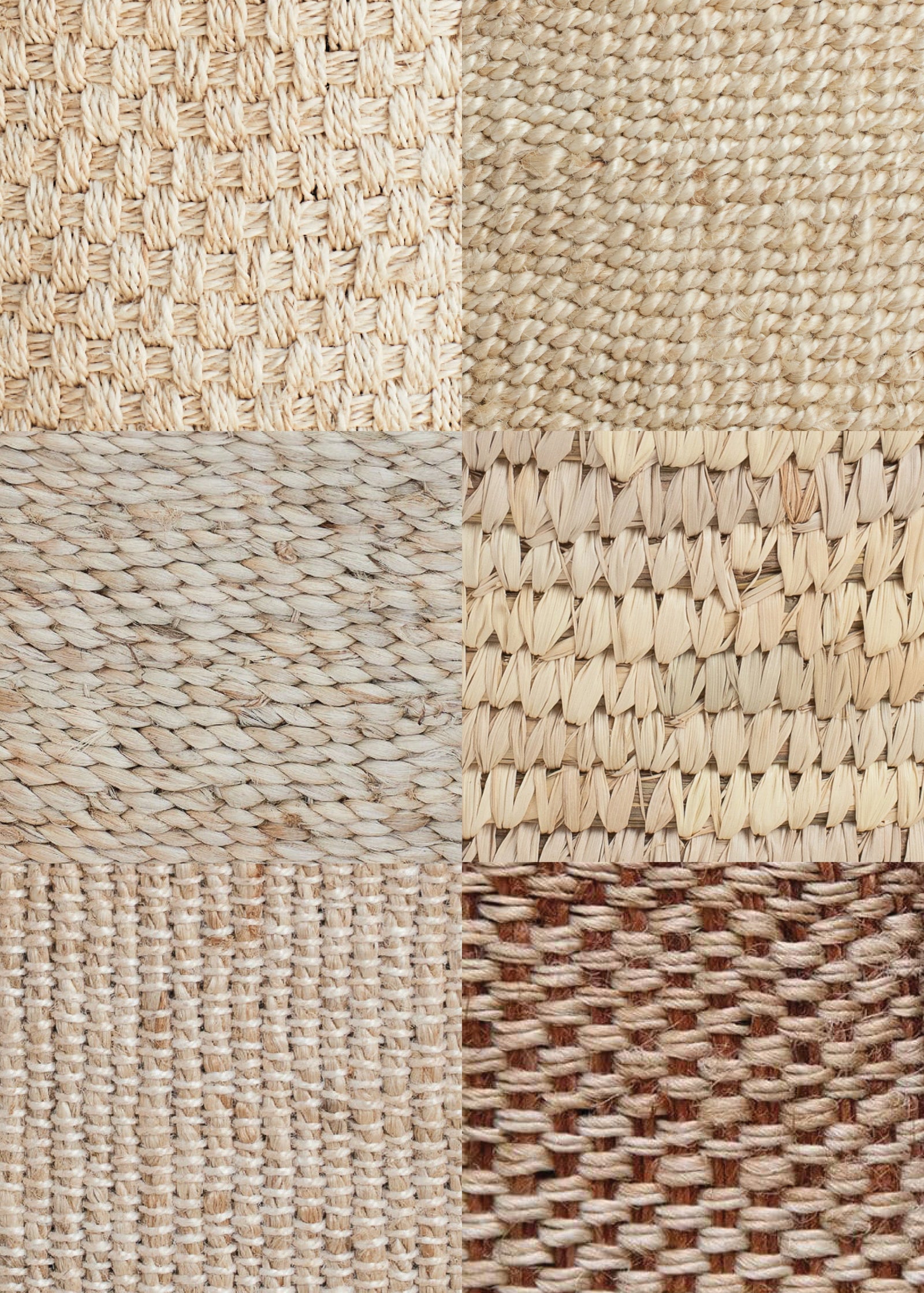Wall Art
Baskets
Rugs
TABLEWARE
Textiles
LIGHTING
DECORATIVE
BAGS
How to Hang Woven & Macrame Wall Hangings

The Dharma Door wall hanging collection has been handmade – from start to finish – by fair trade artisans in rural communities throughout Bangladesh. Each piece is carefully crafted with natural fibres including jute, hemp, palm leaves and grasses. Special care is required to keep your purchase in good condition for a long time.
If you have chosen a Tassel Wall Hanging, it will be folded when it arrives. Once opened, you may notice that it has fold marks and some of the tassels may be fluffy or bent. To make them sit flat, simply use your fingers to bend and brush the tassels. You may need to do this several times.
All of our wall hangings are made of natural fibres and the care instructions are the same. Should you choose to add protection to the wall hanging prior to use, we recommend using a protection spray that is suitable for natural fibres.
To keep your wall hanging in its original condition, we suggest occasional gentle vacuuming to keep it fresh and free of dust. Avoid prolonged contact with direct sunlight, water and heat, as they will discolour jute and other natural fibres.

How to hang your wall hanging
All of our wall hangings come with hanging loops.
- Tassel Wall Hangings - there are hanging tabs all across the top ready for a hanging rod. You will need two hooks - one for each end.
- Mandala Wall Hangings - there are two hanging loops on the back attached to the outer bamboo ring, so you will need two hooks. Note: the hooks will not be on show for this wall hanging so something simple like two screws will do the job.
- Amua & Tala Palm Leaf Wall Hangings - come attached to a hanging rod and also have a handmade jute string attached so you have two options for hanging.
- Puspa Wall Hanging - there are two hanging loops on the back attached to the outer bamboo ring, so you will need two hooks. Note: the hooks will not be on show for this wall hanging so something simple like two screws will do the job.

Renting or own home?
This will determine whether or not you are able to drill into your wall.
Wall type
- Plasterboard & Drywall - use strong anchors or wall plugs suitable for this type of wall, especially for the Jumbo Tassel Wall Hanging which is quite heavy.
- Brick, Stucco & Stone - use masonry anchors or wall plugs.
- Timber - drill directly into the wall. No need for anchors or wall plugs.
Hook type
- For a discreet look, use simple long screws and rest the rod on top. This is not as secure as using hooks, so only do this if the wall hanging is in a position where it won’t be brushed or leant against or pulled on by children or pets. Pro tip: Go one step further and paint the screws the same colour as your walls so they are not obviously visible.
- Cup Hooks are still discreet but much more secure. You can position the hanging tabs of our tassel wall hangings over the cup hooks so they virtually disappear. We prefer matte brass cup hooks and sand them to further reduce the brassy shine. Pro tip: Remember to check that your hanging rod fits into the cup hook.
- Go bold with some hand forged black hooks.
- Or natural and organic with timber hooks.
- Use hooks or supports that are sold with curtain rods.
- If renting or undecided about where you want to hang your wall hanging, we recommend the suction or stick-on removable plastic hooks that suit the weight of your wall hanging.

Rod type for Tassel Wall Hangings
We recommend 20-25mm (1”) diameter, cut to 110cm long (43½”) for the Jumbo Tassel Wall Hanging and 15-18mm (¾”) diameter, cut to 50cm (20”) long for the Tassel Wall Hanging.
- Simple timber dowel is readily available from hardware stores such as Bunnings or The Home Depot. Some hardware stores will cut the dowel to size for you. Pro tip: Paint it the same colour as your wall if you don’t want the rod to stand out.
- Copper pipe, brass or stainless steel tubing to introduce sleek metallics and for a more contemporary look.
- A short curtain rod in rubbed bronze or black works especially well in modern and farmhouse-style interiors.
- Go natural with a foraged branch or a bamboo pole. Pro tip: Keep in mind that knots in natural wood are often a little bigger so check carefully that the hanging loops will fit over them.
Hanging your wall hanging
- Measure where you want the wall hanging to hang and mark on the wall with a pencil according to the position of the hanging loops.
- If drilling into a plasterboard/drywall, brick, stucco or stone wall, use a drill bit that is the same size as the anchors/wall plugs. Drill your hole/s and hammer the anchors/wall plugs into the hole/s. If drilling into timber, use a drill bit that is the same size as the screws or cup hooks.
- Screw your chosen hook into the anchors/wall plugs or holes.
- Hang your wall hanging and enjoy the transformation to your room!

Also in Journal
Notify me when available
We will send you a notification as soon as this product is available again.
We don't share your email with anybody












